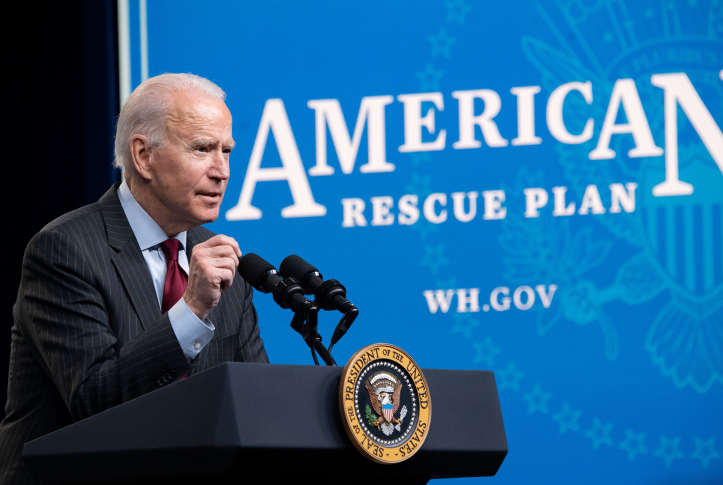The American Rescue Plan Act of 2021, which passed the House of Representatives and is expected to pass the Senate and be signed by President Biden, contains important Medicaid reforms, including mandatory coverage of COVID treatment and immunizations throughout the public health emergency period and the following year, at a minimum. The change extends the reach of earlier reforms enacted in 2020. These developments coincide with a Biden administration announcement on March 2 of a new partnership with insurers to reach the nation’s most vulnerable older Americans.
Extended coverage of the COVID vaccine and major outreach initiatives are crucial developments. But COVID-19, like influenza, is expected to become a permanent part of our lives. Thus, we need to examine federal Medicaid immunization coverage and performance standards for children and adults more carefully. A strong population immunization policy must also include Medicaid managed care, which now accounts for nearly 70 percent of all Medicaid beneficiaries.
Medicaid’s Immunization Coverage Requirements
Medicaid entitles enrolled children and adolescents up to age 21 to all immunizations recommended by the Centers for Disease Control and Prevention (CDC) as a basic component of the law’s Early and Periodic Screening, Diagnostic, and Treatment (EPSDT) benefit. The Children’s Health Insurance Program (CHIP) carries a similar immunization coverage requirement. Both Medicaid and CHIP bar cost sharing for immunizations for children up to age 18.
For adults however, Medicaid policy is considerably less comprehensive. Adults eligible for Medicaid as part of the Affordable Care Act expansion (i.e., low-income working-age adults ineligible for Medicaid under traditional program rules) are insured for all immunizations recommended by the CDC without cost sharing as part of the ACA’s preventive benefit coverage standard. But for adults eligible for traditional Medicaid based on age, disability, pregnancy, or as extremely poor caretakers of minors, immunizations are an optional benefit. As of 2019, fewer than half of all states covered all CDC-recommended adult vaccines, although more states covered immunizations for certain groups, like pregnant women.
Immunizations and Medicaid Managed Care
The 39 states and District of Columbia that use comprehensive Medicaid managed care emphasize primary and preventive care and measure performance. Childhood immunization is a well-established area of emphasis, but the picture is more unclear for adults, even those entitled to full coverage of all CDC-recommended vaccines.
Typically, managed care contracts reflect services covered by the state as part of its general Medicaid plan. But while about half of all states cover CDC-recommended immunizations for adults, fewer clearly specify this level of coverage in their managed care contracts. Using the Commonwealth Fund’s Medicaid managed care contract database, we found that over the 2018–19 time period, seven states and D.C. explicitly set forth the CDC standard into their contracts. Most contracts instead make a more general reference to adult immunizations, and all contracts incorporate separate governing documents that might spell out more robust coverage standards. But the ambiguities regarding the scope of immunization coverage for adults may create gaps in performance.
The more limited focus on adult immunizations under state plans and in managed care contracts may be related to the fact that influenza is the only immunization identified as a performance measure as part of a set of quality standards established by the Centers for Medicare and Medicaid Services. Key adult vaccinations to prevent tetanus, diphtheria, pertussis, HPV, measles, mumps, rubella, shingles, and other serious health conditions lack a corresponding performance measure even though these immunizations are recommended by the CDC.
States vary significantly in how they express adult immunization coverage requirements. For example, New York is clear that contractors cover all “approved vaccines recommended by . . . ACIP [Advisory Committee on Immunization Practices, part of the CDC] . . . and their administration.” California, on the other hand, limits the duty to cover “the most recent recommended” ACIP vaccines but only “if the vaccine is a Medicaid-covered benefit.” Arizona’s managed care contract simply specifies “all medically necessary immunizations,” creating potential ambiguities regarding the scope of coverage and performance obligations.
Using Medicaid Managed Care to Strengthen Immunization Coverage and Performance
COVID-19 underscores the urgency and importance of adult immunization. As research continues, COVID vaccines will become critical for children, as well. Medicaid managed care has the potential to play an enormous role in lifting the level of immunization coverage among both children and adults. With 40 states reporting worsening rates of adult immunizations, reforms that strengthen Medicaid coverage and managed care performance will be critical. Indeed, the new federal–insurer partnership to improve immunization rates among Medicare beneficiaries, including those with both Medicare and Medicaid coverage, underscores the potential role that insurers can play.
As part of this partnership, it makes sense to elevate the importance of full immunization coverage for adults more generally, raising coverage standards to CDC-recommended levels for both routine and emergency use. By incorporating this broader standard into managed care contracts and expanding performance measures beyond influenza, states could use Medicaid managed care to raise the proportion of fully immunized adults.
In states that do not extend immunization coverage to CDC-recommended levels for all adults, federal rules offer Medicaid managed care flexibilities that states and contractors could use to strengthen coverage to member populations. This could include rewarding contractors through payment incentives and other strategies, e.g., preferred enrollment into managed care organizations that offer full immunization coverage as a plan benefit or rewarding primary care providers for fully immunizing patients according to CDC recommendations.





